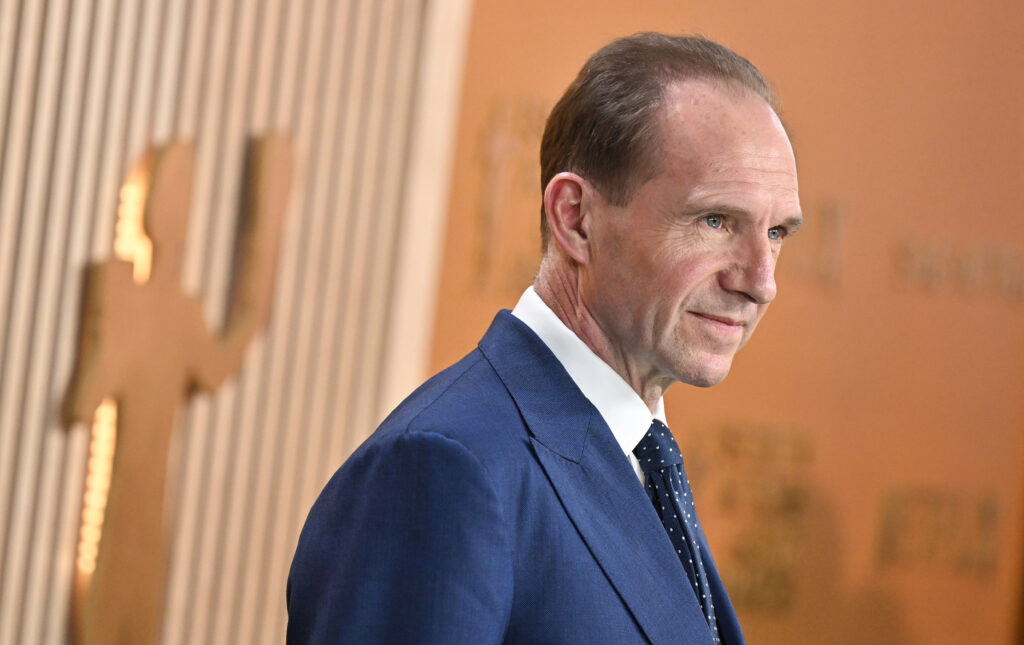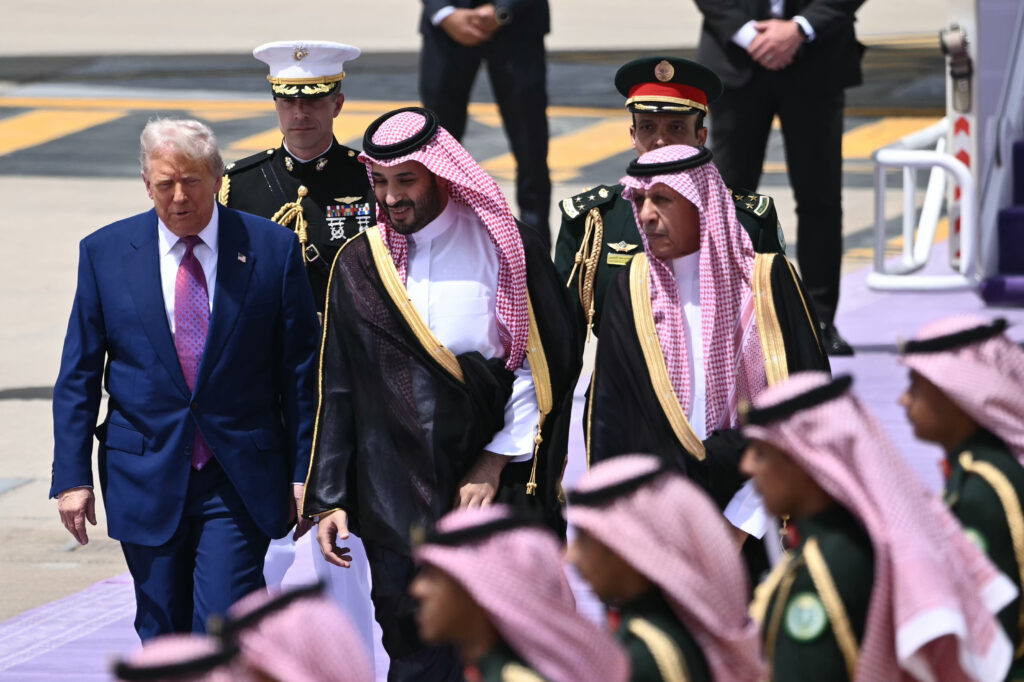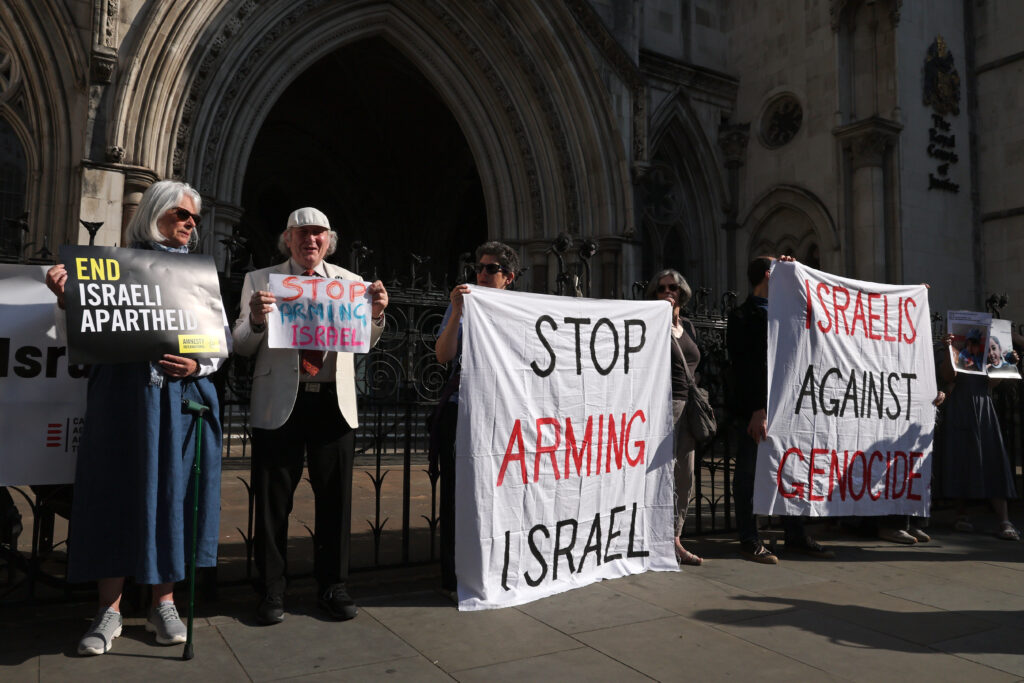AFP Asia Business
Cannes Festival opens under pressure to take stance on Gaza war
The Cannes film festival kicks off on the French Riviera on Tuesday, with organisers facing pressure to take a stance on Israel’s siege of Gaza after a letter from hundreds of top cinema figures denouncing “genocide” in the Palestinian territory.More than 380 film insiders including “Schindler’s List” actor Ralph Fiennes and four former Cannes-winning directors said they were “ashamed” of their industry’s “passivity”.”We cannot remain silent while genocide is taking place in Gaza,” read the letter initiated by several pro-Palestinian activist groups and published in French newspaper Liberation and US magazine Variety. The signatories — which include Hollywood stars Richard Gere and Susan Sarandon as well as acclaimed Spanish director Pedro Almodovar and former Cannes winners Ruben Ostlund, Mike Leigh and Costa-Gavras — also denounced the death of Gazan photojournalist Fatima Hassouna.Hassouna, 25, is the subject of a documentary that will premiere in Cannes on Thursday by exiled Iranian director Sepideh Farsi, titled “Put Your Soul on Your Hand and Walk”.Hassouna was killed along with 10 relatives in an Israeli air strike on her family home in northern Gaza last month, the day after the documentary was announced as part of the ACID Cannes selection.Farsi called on Cannes Festival organisers to denounce Israel’s ongoing bombardment and siege of the Palestinian territory. “There needs to be a real statement,” she told AFP.This year’s Cannes jury president Juliette Binoche was initially said by organisers to have signed the petition but her name was not on the final published list.Speaking to reporters, she said “you’ll maybe understand it a little later”, hinting that she or the festival might make some sort of a statement at the opening ceremony that starts at 7:15 pm (1715 GMT). Other notable signatories of the Gaza petition include Jonathan Glazer, the British director of Jewish origin who won an Oscar for his 2023 Auschwitz drama “The Zone of Interest”, as well as US star Mark Ruffalo and Spanish actor Javier Bardem.- War programming -Other off-screen news in France also risked overshadowing the opening ceremony on Tuesday, which will see Robert De Niro receive an honorary Palme d’Or award from fellow actor and occasional co-star Leonardo DiCaprio.In a court decision followed by the entire film world, legendary French actor Gerard Depardieu was convicted Tuesday of sexual harassment in a Paris court and handed an 18-month suspended prison sentence.The 76-year-old, who has acted in more than 200 films and television series, is the highest-profile figure caught up in France’s response to the #MeToo movement against sexual violence.Binoche said Depardieu had “lost his aura” and “when someone loses their aura like he is at the moment, it makes you think about the power of a certain person, who creates power”. Cannes Festival director Thierry Fremaux declined to give his view on the case at a press conference on Monday.Fremaux will be hoping the festival’s film selections take greater prominence in the coming days, though politics and the outside world often dominate the conversation in Cannes.The inaugural film on Tuesday is musical drama “Leave One Day” by newcomer French director Amelie Bonnin, who will become the first debut director to be granted the prestigious opening slot.New red carpet rules, prohibiting “total nudity” and limiting the length of the trains on dresses, are also set to come into force.Oscar-winning Hollywood star Halle Berry, who is on the nine-member jury judging the main competition this year, said she had been tripped up by the train restrictions and had had to change outfits.”The nudity part is probably also a good rule,” she told reporters.- Cruise in town – While independent cinema forms the core of the Cannes festival, organisers have also handed over part of the programme this year, as usual, to major Hollywood blockbusters.Tom Cruise is set to return to the Riviera for the premiere of the latest instalment of his “Mission: Impossible” franchise on Wednesday, three years after attending the festival for “Top Gun: Maverick”.After US President Donald Trump threatened to implement 100-percent tariffs on movies “produced in foreign lands”, Fremaux talked up the prominence of US-made films in Cannes.Movies from directors Wes Anderson, Richard Linklater, Ari Aster and Kelly Reichardt are competing for the top Palme d’Or award in the main competition.”American cinema remains great cinema. The United States remains a great country of cinema,” he said.Binoche said she understood that Trump was “trying in many, many different ways to save America, and save his ass”.
Trump boasts Saudi business deals as he basks in royal welcome
US President Donald Trump on Tuesday trumpeted major business deals with Saudi Arabia as he basked in a lavish royal welcome on the first state visit of his second term.The Saudi hosts escorted Air Force One into the kingdom with fighter jets before bringing out long-stretching guards of honour and sending flag-waving horseback cavalry to accompany Trump’s motorcade to the palace.Under imposing chandeliers, Trump welcomed a promise by Saudi Arabia’s de facto ruler, Crown Prince Mohammed bin Salman, for $600 billion in investment and quipped that it should be $1 trillion.”We have the biggest business leaders in the world here today and they’re going to walk away with a lot of cheques,” Trump told the prince.For “the United States, it’s probably two million jobs that we’re talking about,” Trump said.With cameras rolling, a lengthy procession of Saudi royalty and business figures waited their turn to shake hands with Trump and the crown prince, including Elon Musk, the world’s richest person and close advisor to Trump who made a rare appearance in a suit.Trump will address an investment forum in Riyadh where specifics of deals are expected to be announced.He will head later in the week head to Qatar and the United Arab Emirates, fellow oil-rich Arab monarchies with long-standing ties to the United States.In choosing the Gulf for his first major tour, the 78-year-old billionaire is again bypassing traditional presidential stops in Western allies, some of which have been unnerved by his norms-shattering diplomacy.Eight years ago Trump also chose Saudi Arabia for his first overseas trip — when he posed with a glowing orb and participated in a sword dance.Trump’s embrace of the Saudis contrasts with a more hesitant initial approach by former president Joe Biden, who had vowed to punish the crown prince after US intelligence found that he ordered the murder of dissident Saudi journalist Jamal Khashoggi in 2018.Trump reminisced with the 39-year-old crown prince of their first meeting, saying he was “so impressed with this young guy who was very wise beyond his years”.- Saudis seek image change -Since Khashoggi’s gruesome killing, Saudi Arabia has worked aggressively to change its image, from easing restrictions on women to pursuing initiatives in new areas such as artificial intelligence.Saudi Arabia has also increasingly exercised diplomatic clout, serving as a venue for the United States to pursue talks with Ukraine and Russia.Qatar and the United Arab Emirates have also sought outsized international roles, with the Qataris serving as a mediator along with the United States and Egypt in the Israel-Hamas conflict.Jon Alterman, senior vice president at the Center for Strategic and International Studies, said that for Trump, the Gulf “is his happy place”.”His hosts will be generous and hospitable. They’ll be keen to make deals. They’ll flatter him and not criticise him. And they’ll treat his family members as past and future business partners,” he said.According to a Saudi official close to the defence ministry, Riyadh will push for securing the latest US F-35 fighter jets along with state-of-the-art air defence systems worth billions of dollars.”We will condition that the deliveries take place during Trump’s term,” the source told AFP.- Lavish plane -Not to be outdone, Qatar has offered a luxury Boeing aircraft for Trump to refurbish as Air Force One and then use personally after he leaves the White House.Trump’s Democratic rivals have called the gift blatant corruption. Trump has hit back that it was “very public and transparent” and said: “I would never be one to turn down that kind of an offer.”An ultimate prize, pushed both by Trump and Biden, has been to persuade Saudi Arabia, home of Islam’s holiest sites, to take the landmark step of recognising Israel.But Israel normalisation is not likely to feature high on the agenda on Trump’s trip, with Riyadh insisting a Palestinian state must be established first.Israel has cut off all food and other supplies to Gaza for more than two months as it pursues a new offensive against Hamas militants.The United States, which has quietly been frustrated with its ally, negotiated directly with Hamas to secure the release of a hostage with US citizenship, Edan Alexander, to whom Trump spoke by telephone Tuesday.Iran will likely feature prominently in the talks in the Gaza, following the Trump administration’s fourth round of nuclear negotiations with Tehran at the weekend.Both sides have voiced hope but the United States on Monday imposed fresh sanctions targeting Iran’s suspect nuclear programme.
Rights groups take UK govt to court over Israel arms sales
Rights groups and NGOs took the UK government to court on Tuesday accusing it of breaching international law by supplying fighter jet parts to Israel amid the war in Gaza.Supported by Amnesty, Human Rights Watch, Oxfam and others, the Palestinian rights association Al-Haq is seeking to stop the government’s export of UK-made components for Lockheed Martin F-35 fighter jets.Israel has used the US warplanes to devastating effect in Gaza and the West Bank — both Israeli-occupied Palestinian territories — and the head of Amnesty UK said Britain had failed to uphold its “legal obligation… to prevent genocide” by allowing the export of key jet parts to Israel.Around 50 protesters gathered outside court ahead of the hearings, waving Palestinian flags and placards with the words “STOP ARMING ISRAEL: STOP THE GENOCIDE”. The plane’s refuelling probe, laser targeting system, tyres, rear fuselage, fan propulsion system and ejector seat are all made in Britain, according to Oxfam, and lawyers supporting Al-Haq’s case said the aircraft “could not keep flying without continuous supply of UK-made components”. Opening their case against the government, lawyers said the UK’s trade department had allowed exports of F-35 parts knowing there was a “clear risk” they would be used to commit violations of international law.It is not certain when a decision could be made following the four-day hearing at London’s High Court, which marks the latest stage in a long-running legal battle.Lawyers for the Global Action Legal Network (GLAN) have said they launched the case soon after Israel’s assault on Gaza began, following the October 7, 2023, attack in Israel by militants from Hamas. Israel has repeatedly denied accusations of genocide.The lawyers said the UK government had decided in December 2023 and again in April and May 2024 to continue arms sales to Israel, before suspending licences in September 2024 for weapons assessed as being for military use by the Israeli army in Gaza.The new Labour government suspended around 30 licences following a review of Israel’s compliance with international humanitarian law.But the partial ban did not cover British-made parts for the advanced F-35 stealth fighter jets.A UK government spokesperson told AFP it was “not currently possible to suspend licensing of F-35 components for use by Israel without prejudicing the entire global F-35 programme, due to its strategic role in NATO and wider implications for international peace and security”.”Within a couple of months of coming to office, we suspended relevant licences for the IDF (Israeli Defense Forces) that might be used to commit or facilitate serious violations of International Humanitarian Law in Gaza,” they said.- ‘UK not a bystander’ -The government insisted it had “acted in a manner consistent with our legal obligations” and was “committed to upholding our responsibilities under domestic and international law”.But GLAN described the F-35 exemption as a “loophole” which allowed the components to reach Israel indirectly through a global pooling system.Charlotte Andrews-Briscoe, a lawyer for GLAN, told a briefing last week the UK government had “expressly departed from its own domestic law in order to keep arming Israel”, with F-35s being used to drop “multi-ton bombs on the people of Gaza”.The 2023 attack in southern Israel by militants from Palestinian group Hamas resulted in the deaths of 1,218 people, mostly civilians, according to an AFP tally based on official figures.Israel’s retaliatory offensive has killed at least 52,862 people in Gaza, mostly civilians, according to the territory’s health ministry, whose figures the United Nations deems reliable.The figure includes at least 2,749 who have died since Israel ended a two-month ceasefire in mid-March.”Under the Genocide Convention, the UK has a clear legal obligation to do everything within its power to prevent genocide,” said Sacha Deshmukh, Amnesty International UK’s chief executive. “Yet the UK government continues to authorise the export of military equipment to Israel — despite all the evidence that genocide is being committed by Israel against the Palestinian people in Gaza. “This is a fundamental failure by the UK to fulfil its obligations.”Al-Haq’s general director Shawan Jabarin said: “The United Kingdom is not a bystander. It’s complicit, and that complicity must be confronted, exposed and brought to account.”
Cannes Festival under pressure to take stance on Gaza war
The Cannes film festival kicks off on the French Riviera Tuesday, with organisers facing pressure to take a stance on Israel’s siege of Gaza after a letter from hundreds of top cinema figures denouncing “genocide” in the Palestinian territory.More than 380 film insiders including “Schindler’s List” actor Ralph Fiennes and four former Cannes-winning directors said they were “ashamed” of their industry’s “passivity”.”We cannot remain silent while genocide is taking place in Gaza,” read the letter initiated by several pro-Palestinian activist groups and published in French newspaper Liberation and US magazine Variety. The signatories — which include Hollywood stars Richard Gere and Susan Sarandon as well as acclaimed Spanish director Pedro Almodovar and former Cannes winners Ruben Ostlund, Mike Leigh and Costa-Gavras — decried the death of Gazan photojournalist Fatima Hassouna.Hassouna, 25, is the subject of a documentary which will premiere in Cannes on Thursday by exiled Iranian director Sepideh Farsi, titled “Put Your Soul on Your Hand and Walk”.Hassouna was killed along with 10 relatives in an Israeli air strike on her family home in northern Gaza last month, the day after the documentary was announced as part of the ACID Cannes selection.Farsi called on Cannes Festival organisers to denounce Israel’s ongoing bombardment and siege of the Palestinian territory which faces a “critical risk of famine”, according to a recent UN report. “There needs to be a real statement,” she told AFP.This year’s Cannes jury president Juliette Binoche was initially said by organisers to have signed the petition but her spokeswoman told AFP that she had not endorsed it.She is set to speak at a press conference at 1230 GMT along with fellow jury members. Other notable signatories of the open letter include Jonathan Glazer, the British director of Jewish origin who won an Oscar for his 2023 Auschwitz drama “The Zone of Interest”, as well as US star Mark Ruffalo and Spanish actor Javier Bardem.- War programming -Other off-screen news in France also risked overshadowing the red-carpet action in Cannes on Tuesday, which will begin at 1715 GMT with an opening ceremony headlined by Robert De Niro. In a court decision followed by the entire film world, legendary French actor Gerard Depardieu was convicted Tuesday in a Paris court of sexual harassment and handed an 18-month suspended prison sentence.The 76-year-old, who has acted in more than 200 films and television series, is the highest-profile figure caught up in France’s response to the #MeToo movement against sexual violence.Cannes Festival director Thierry Fremaux declined to comment on the case at a press conference on Monday.Fremaux will be hoping the festival’s film selections take greater prominence in the following days, although politics and the outside world often dominate the conversation in Cannes.”I have a habit of saying that the festival is political because artists are,” he told journalists.De Niro is set to receive an honorary Palme d’Or award at the opening ceremony from 1715 GMT. The inaugural film is “Leave One Day” by newcomer French director Amelie Bonnin, who will become the first debut director to be granted the prestigious opening slot. Three documentary films showing the devastation of Russia’s war on Ukraine are also set to be screened on Tuesday as part of a “Ukraine Day” of programming.- Cruise in town – While independent cinema forms the core of the Cannes festival, organisers also hand over part of the programme to major Hollywood studios to promote their blockbusters.Tom Cruise is set to return to the Riviera for the premiere of the latest instalment of his “Mission: Impossible” franchise on Wednesday, three years after he lit up the festival while promoting “Top Gun: Maverick”.After US President Donald Trump threatened to implement 100-percent tariffs on movies “produced in foreign lands”, Fremaux talked up the prominence of US-made films in Cannes.Movies from directors Wes Anderson, Richard Linklater, Ari Aster and Kelly Reichardt are competing for the top Palme d’Or award in the main competition of 22 movies.”American cinema remains great cinema. The United States remains a great country of cinema,” he said.The festival will also see a series of high-profile debut films from actors-turned-directors, including “Eleanor the Great” from Scarlett Johansson and “The Chronology of Water” by Kristen Stewart.Organisers on Monday denied reports that they had banned provocative near-nude dresses from the red carpet.However, “full nudity on the red carpet” has been formally outlawed, “in keeping with French law”.
Nissan posts $4.5 bn annual net loss, to cut 20,000 jobs
Japan’s Nissan posted an annual net loss of $4.5 billion on Tuesday while saying it plans to cut 15 percent of its global workforce and warning about the possible impact of US tariffs.The heavily indebted carmaker, whose mooted merger with Honda collapsed this year, is slashing production as part of its expensive business turnaround plan.”Nissan …
Nissan posts $4.5 bn annual net loss, to cut 20,000 jobs Read More »




